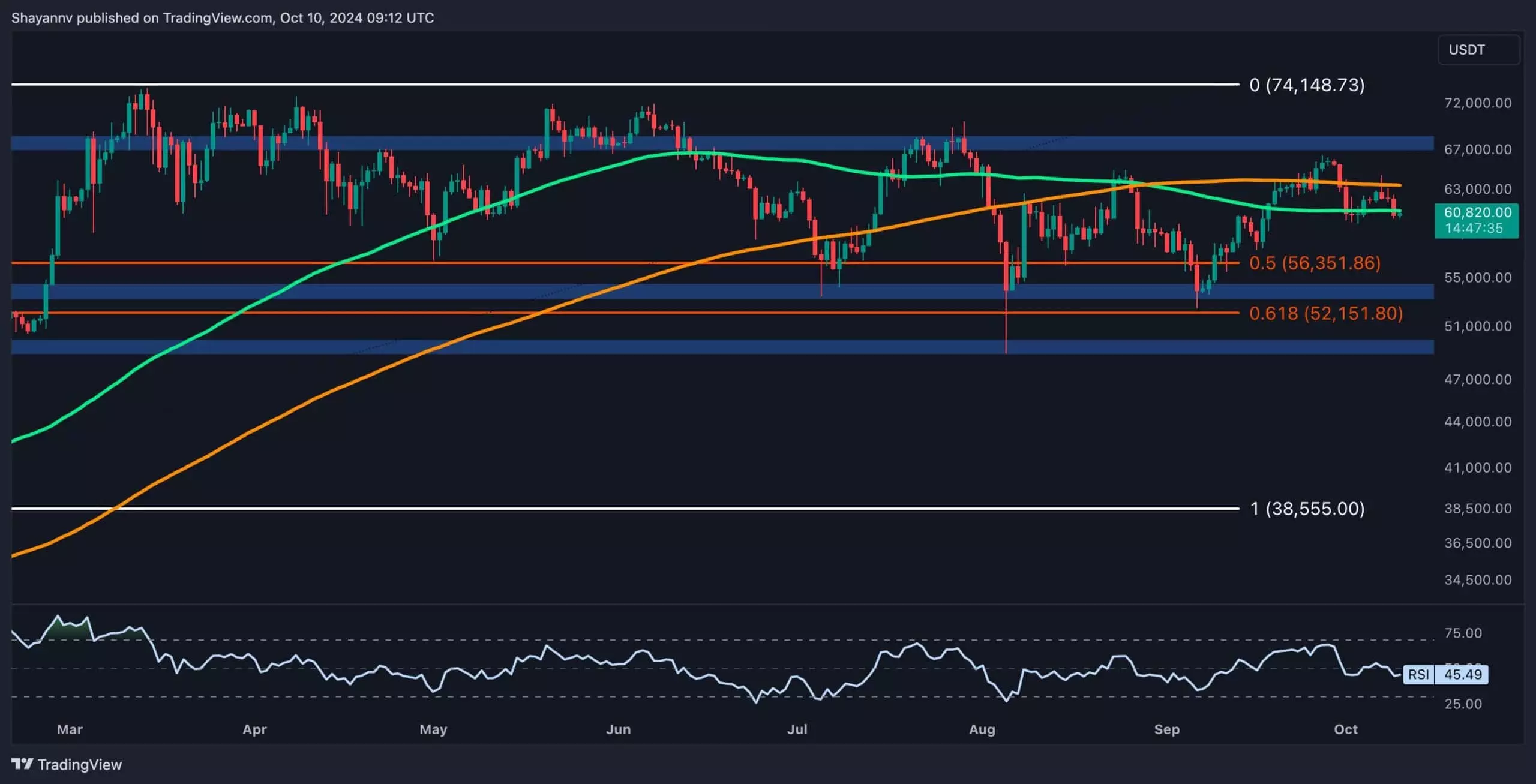Bitcoin, the leading cryptocurrency, recently faced significant selling pressure as it approached the $66K mark. This failure to breach such a pivotal resistance level has sparked discussions among market analysts regarding the prevailing sentiment. Traditionally, the $66K region has acted as a strong barrier, and the price’s inability to maintain momentum above this threshold suggests that bearish sentiment is intensifying. As Bitcoin trades below its 200-day moving average, currently residing at approximately $63.4K, traders are increasingly concerned about imminent declines.
The marketplace is now observing Bitcoin’s precarious position as it hovers around the psychological support level of $60K. This level serves not only as a psychological benchmark but also as technical support. A breach below this line could trigger a cascade of selling, leading prices toward the mid-term support zone of $52K to $55K. This latter area stands as a critical buffer, where buying interest might re-emerge if bearish momentum persists.
Analyzing the 4-hour chart reveals that Bitcoin faced resistance within the key Fibonacci retracement zone of 0.618 to 0.786, aligning closely with the $66K price point. The heavy selling that materialized at this juncture led to a notable 10% decline in price. This suggests that traders are actively defending the $66K resistance, reinforcing its status as a formidable barrier.
In the immediate future, the expectation is for Bitcoin to enter a short-term consolidation phase. The reaction at the $60K support will be pivotal. Should Bitcoin manage to hold above this level, it may navigate sideways temporarily, allowing traders to regroup before making another attempt to retake higher ground. Conversely, failure to sustain above $60K could not only accelerate downward momentum but also signal a broader bearish trend.
A critical factor influencing Bitcoin’s price trajectory is the Bitcoin Coinbase Premium Index. Currently, this index shows negative values, indicating a retreat of interest from U.S. institutional investors. Such a metric is vital as it provides insight into whether larger market players are accumulating or distributing their BTC holdings. With negative readings, the market appears to be grappling with either significant selling pressure or a notable pause in large-scale accumulation efforts.
This bearish outlook may seem alarming; however, periods of low sentiment often offer attractive buying opportunities for potential investors. Long-term holders may find this dip provides an advantageous entry point, especially if historical trends of market recovery hold true. Nevertheless, in a marketplace where both accumulation and selling pressure are seemingly diminishing, the current narrative is one marked by indecision.
As Bitcoin operates within a descending trend channel, fluctuating between various support and resistance levels, market participants are advised to exercise caution. The current environment, characterized by a lack of clear trends, introduces a high degree of risk for short-term traders. In such uncertain conditions, volatility can accelerate rapidly, leading to potential losses if positions are not managed effectively.
For those considering entry into Bitcoin positions, both short and long-term strategies should be approached with care, keeping close watch on the established support and resistance levels. Moving forward, it will be crucial for traders to monitor the $60K support diligently while assessing the behavior of institutional investors through indicators like the Coinbase Premium Index. The outcome of these dynamics will undoubtedly shape the near-term horizon for Bitcoin’s price movement, making astute observation and analysis key to navigating this particular landscape.
Bitcoin’s current state reflects a complex interplay of technical resistances and evolving market sentiments. As the landscape unfolds, stakeholders in the cryptocurrency space must remain vigilant, continuously adapting their strategies to reflect these ever-changing conditions.
















Leave a Reply